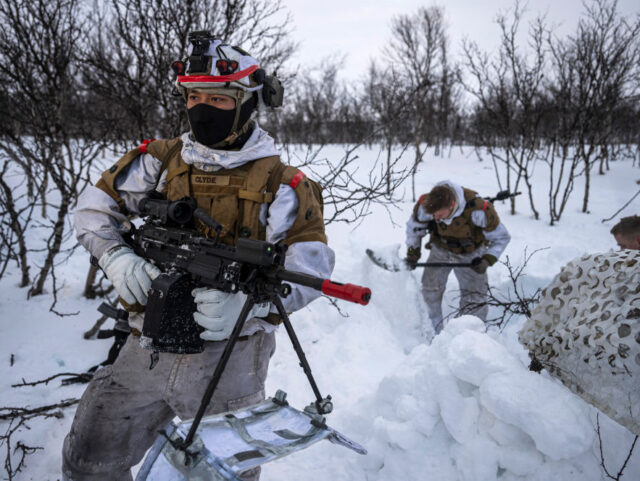Norway has become the latest European state to look again at its conscription programme, pushed by Russian aggression against Ukraine, and will increase the number of young people selected for compulsory service in the coming years.
Norwegian defence minister Bjørn Arild Gram has said Europe must be ready for the eventuality Moscow reorients its military position in response to Finland and Sweden joining NATO by deploying more troops to its northern borders, adding even after the Ukraine war ends he believes the Russian threat will not go away. The comments came just before he announced the country would be bolstering its armed forces by increasing conscription.
Norway, a NATO founder member, has had conscription for over a century, and changed to law to make selection universal in 2015, meaning both men and women can be selected for compulsory service. Until now, the Norwegian armed forces have inducted some 9,000 conscripts a year from the new cohort of 19-year-olds but intend to grow this by 50 per cent to 13,500 a year by 2036.
In the Norwegian model, conscripts get a period of initial training and then occasional top-up courses after they are released to civilian work until they are 44 years old. The system means there is a large pool of militarised potential soldiers with some training in the civilian population in case of a national emergency who can be mobilised relatively quickly. In this respect, it shares some characteristics with Switzerland, for instance, which expects all adult male citizens to remain proficient with a rifle for life for emergency national defence.
Gender Equality! Denmark Expanding Conscription to Women https://t.co/fMr9IedygN
— Breitbart London (@BreitbartLondon) March 15, 2024
Norway does not conscript individuals at random, but rather assesses all eligible young people annually, and selects the most enthusiastic or apt to serve, taking that 9,000 or now 13,500 from a pool of tens of thousands annually.
Of the importance of having that reserve just in case, Norwegian defence minister Bjørn Arild Gram said of the decision to plough “several billion kroner” (several hundreds of millions of dollars) into growing conscription that: “We must have enough people with the right skills at the right time… We will need more people with professional military expertise going forward.”
The announcement comes as Norway announces major changes to its armed forces in general, to deal with the changing threat picture as Europe emerges out of the back of the post-Cold War world. The Norwegian government is due to publish a major 12 year plan for their military this week. Speaking yesterday, Gram said of those changes: “We must be ready that Russia may review its plans and where it deploys its forces in response to Finland and Sweden’s NATO membership”.
Indeed, Norway is not the first country to make such moves in recent months and conscription has become, for the first time in decades, a subject of earnest discussion in European capitals. As reported, Denmark announced it was extending conscription in March, doubling the length of mandatory service and calling up more young people, extending that to women as well as men. Danish defence minister Troels Lund Poulsen says the situation “has become more and more serious, and we have to take that into account when we look at future defense… a broader basis for recruiting that includes all genders is needed.”
Germany has also been discussing the return of conscription as it struggles to fill the ranks of its own military. For clear historic reasons, military service carries something of a stigma in Germany to this day, which doubtless impacts recruitment, even before relatively poor conditions and low investment in the forces are felt. That attitude is reflected in a poll published last month, which found a strong majority of Germans would refuse to serve if called, even if the nation came under attack.
59 per cent said they would “probably not” or “absolutely not” take up arms if Germany was attacked. Green party voters were the least likely to be willing to defend Germany, and women were considerably less enthusiastic about the prospect than men.
Six in Ten Germans Unwilling to Pick Up Arms to Defend the Country if Attacked https://t.co/Jxv9ix8eUh
— Breitbart London (@BreitbartLondon) March 9, 2024

COMMENTS
Please let us know if you're having issues with commenting.